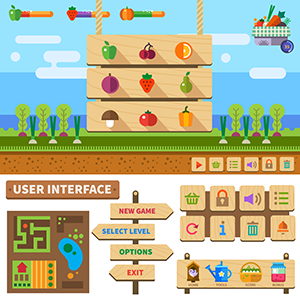Games That Produce Business Results, and Ones That Don’t—Sharon Boller
This guest post comes to us from Sharon Boller, president and chief product officer at Bottom-Line Performance and upcoming speaker at DevLearn 2016 Conference & Expo.
A couple Saturdays ago, my husband indulged my love of board games with me. In my defense, this was a game he had picked out for purchase earlier that day. I had a bad feeling about it when I read the back of the box, but I’m always willing to try a new game, so I dove in.
It took me an hour to get the game set up for the first play—not a good sign. Before we sat down together, I diligently read through the rules. However, as with most games, you simply have to get into play to understand some of them. “No problem,” I thought. “We’ll play a round and the rules will become clear.”
Alas, not so. We had to keep referring to the rules the entire game, which is a great definition of “not fun.” Each turn had four specific stages to it, and we both found it difficult to remember all the actions you took during a particular stage of play. One of the worst examples of complexity was the use of eight different types of amusement concessions, each with its own unique power. Remembering the power associated with each one was impossible, yet there was no cheat sheet for each player to keep in front of him or her. Once again, we had to keep pulling out the rules.
 In short, the game was a terrific example of how over-complexity of rules and game elements can torpedo fun. It’s one of the lessons of learning game design that I’ve written about and presented on at conferences. What’s the big deal if it’s a bit complex, you ask? Well, my husband’s reaction to it was the big deal. I heard, “I stink at games.” And “I just don’t think I like playing games that much.” These are not the reactions you want a learner to have. (Interestingly, these statements also did not reflect my husband’s past experiences. He HAS had fun with games, but this game did not instill confidence in him as a game player.) If learners react this way during a learning game, this emotional shutdown means they are shutting down on learning. Your game should help develop confidence and competence, not feelings of inadequacy or lack of motivation.
In short, the game was a terrific example of how over-complexity of rules and game elements can torpedo fun. It’s one of the lessons of learning game design that I’ve written about and presented on at conferences. What’s the big deal if it’s a bit complex, you ask? Well, my husband’s reaction to it was the big deal. I heard, “I stink at games.” And “I just don’t think I like playing games that much.” These are not the reactions you want a learner to have. (Interestingly, these statements also did not reflect my husband’s past experiences. He HAS had fun with games, but this game did not instill confidence in him as a game player.) If learners react this way during a learning game, this emotional shutdown means they are shutting down on learning. Your game should help develop confidence and competence, not feelings of inadequacy or lack of motivation.
Even if the player’s reaction to the complexity is positive—and, for some, it might be—complexity is not your friend. Learning games are about helping people learn to do something or helping them acquire automaticity that makes some other task in their job easier. (Example: multiplication drills and chalkboard games probably helped you build automaticity in calculating arithmetic problems, making it much easier for you to shop, pay for things, budget, etc.) Complexity in game rules and elements means players’ focus is on those things, leaving little cognitive space for the learning tasks you need them to accomplish.
Games focused on producing performance focus on the instructional design first and the game design second. The choices made in core dynamics, mechanics, and game elements are highly deliberate.
If you want a game to produce business results, be sure the game is designed to enable the performance you believe will link to those results. If automaticity (easy, quick retrieval of content from memory) is required, this means a game with lots of repetition of content spaced over time. If decision-making is required, this probably means incorporating story and theme into the game and ensuring players get lots of practice with making decisions and seeing consequences/feedback. It might mean leveling as well, starting the game with easier scenarios and progressing to harder ones.
Take a deeper dive with Sharon on this topic at her pre-conference workshop with Karl Kapp, BYOL: Play to Learn—Designing Effective Learning Games, at DevLearn 2016 Conference & Expo on Tuesday, November 15, in Las Vegas. She will also co-present a session titled Sales Enablement and Beyond: Using Games to Drive Performance with Steven Boller on Friday, November 18. Click here to learn more about DevLearn!


Leave a Reply